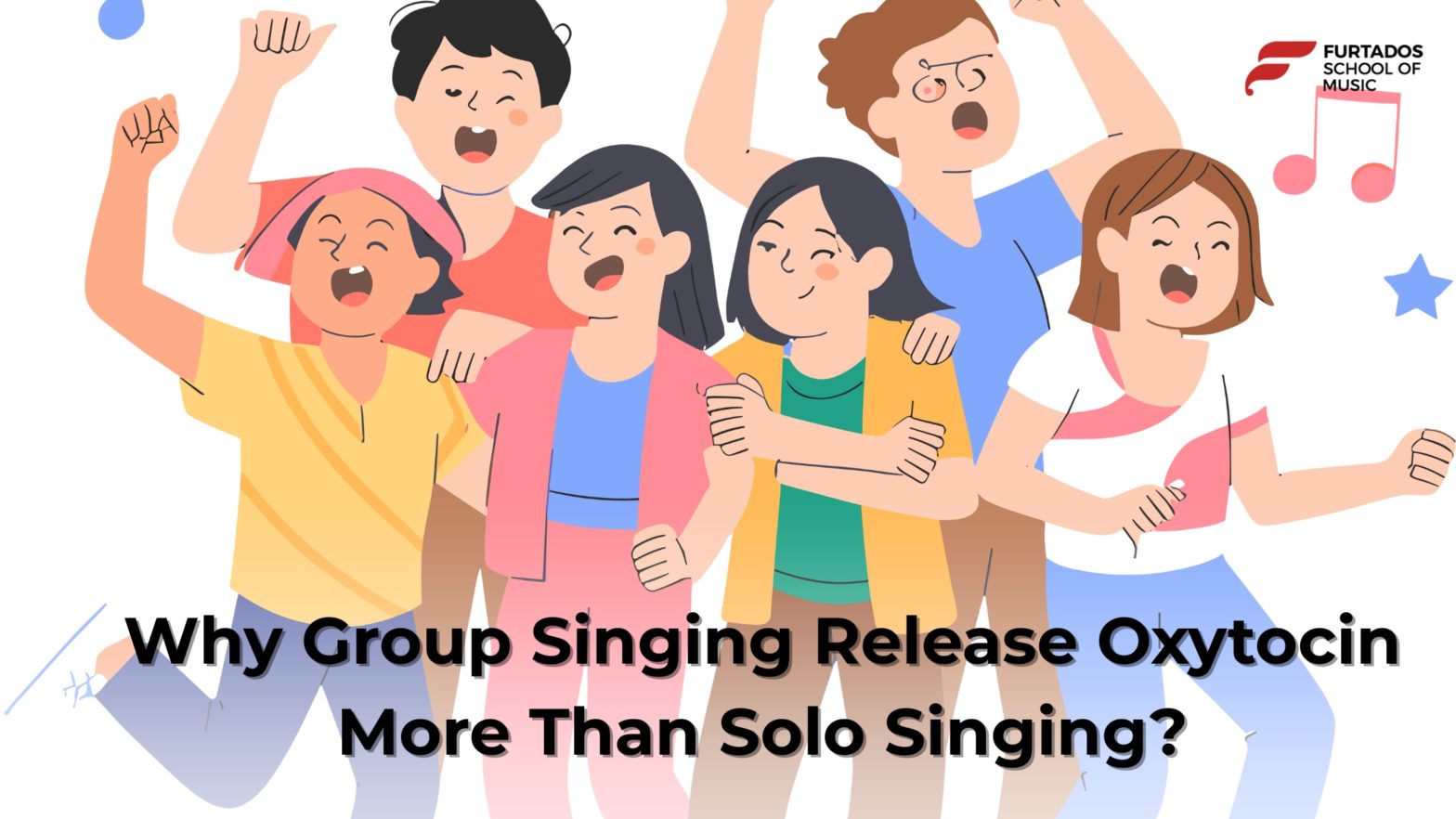Singing is often thought of as a solo act — something we do in the shower, on stage, or into our headphones. But science now shows that singing in a group can offer even more powerful emotional, social, and physical benefits. In fact, group singing has been found to release higher levels of oxytocin, the hormone responsible for bonding, trust, and reducing stress, highlighting how Group Singing Release Oxytocin.
It’s not just about hitting the right notes — it’s about what happens in your brain, body, and community when voices come together.
The Power of Singing Together
Oxytocin, often called the “love hormone” or “connection chemical,” plays a key role in human relationships. It’s released during moments of physical touch, deep emotional connection, and — surprisingly — when people sing together.
Whether it’s a school choir, a community music class, or even a casual jam session, singing in a group promotes emotional bonding. This is one of the most scientifically proven benefits of group singing — it strengthens social ties and enhances overall well-being.
Singing and the Brain
The effects of music on the brain are truly fascinating. When we sing, multiple areas of our brain are activated — including those involved in memory, language, emotion, and motor coordination. But singing in harmony with others brings in something extra.
Research from universities like Oxford and the University of California shows that group singing:
- Increases endorphins (feel-good chemicals)
- Regulates breathing and heart rate
- Synchronizes brainwave patterns between singers
- Enhances neural connectivity
In simple terms, your brain is more “in tune” when you’re singing with others. This makes singing not just a creative outlet, but also a brain-boosting activity.
Singing and Mental Health
One of the most impactful areas where group singing makes a difference is mental wellness. The connection between singing and mental health has been studied globally, and the results are incredibly positive.
Group singing:
- Reduces symptoms of anxiety and depression
- Lowers cortisol (the stress hormone)
- Increases feelings of belonging and emotional safety
- Helps people process grief, trauma, or loneliness
When people sing together, especially in a relaxed and encouraging environment, it creates a sense of shared joy and vulnerability. That’s why community choirs, group music classes, and even casual sing-alongs have been used in therapy, elderly care, and recovery programs.
Group Music Classes: More Than Just Music Lessons
At first glance, group classes may seem like just another way to learn an instrument or improve vocal skills. But in reality, they serve a much greater purpose.
Here’s why group music sessions are gaining popularity among parents, students, and music enthusiasts of all ages:
1. Confidence Building
Students learn to express themselves without fear of judgment. Singing in a group reduces stage fright and helps even shy learners find their voice.
2. Teamwork and Social Skills
Learners develop a sense of responsibility, listening skills, and empathy — core values of any strong community.
3. Better Learning Through Peer Interaction
Students often learn faster when surrounded by others at a similar level. Observing, harmonizing, and collaborating accelerates their musical growth.
4. Fun, Motivation & Engagement
Group energy is contagious. The joy of making music together motivates learners to stick with their practice and keep growing.
When children or adults are part of regular singing groups, they’re not just learning music — they’re nurturing their emotional intelligence and social resilience.
Health Benefits Backed by Science
The effects of music on the brain go beyond just learning and emotions. Group singing also has tangible physical health benefits:
- Boosts immune function by increasing Immunoglobulin A
- Improves respiratory health through controlled breathing
- Promotes posture and body awareness
- Reduces blood pressure and enhances heart health
When done regularly, singing in a group can be as beneficial as light physical exercise — especially for older adults or those with limited mobility.
Final Note: Why You Should Join In
Whether you’re a trained singer or someone who just hums in the car, participating in a group singing session can do wonders. The benefits of group singing aren’t just emotional — they’re neurological, physical, and deeply human.
In a world that’s becoming more digital and isolated, singing together reminds us of the power of community and the simple joy of shared experiences. So this World Music Day — or any day — consider joining a local choir, enrolling in group music classes, or simply singing along with friends.
Because sometimes, the best therapy is just a song away.
